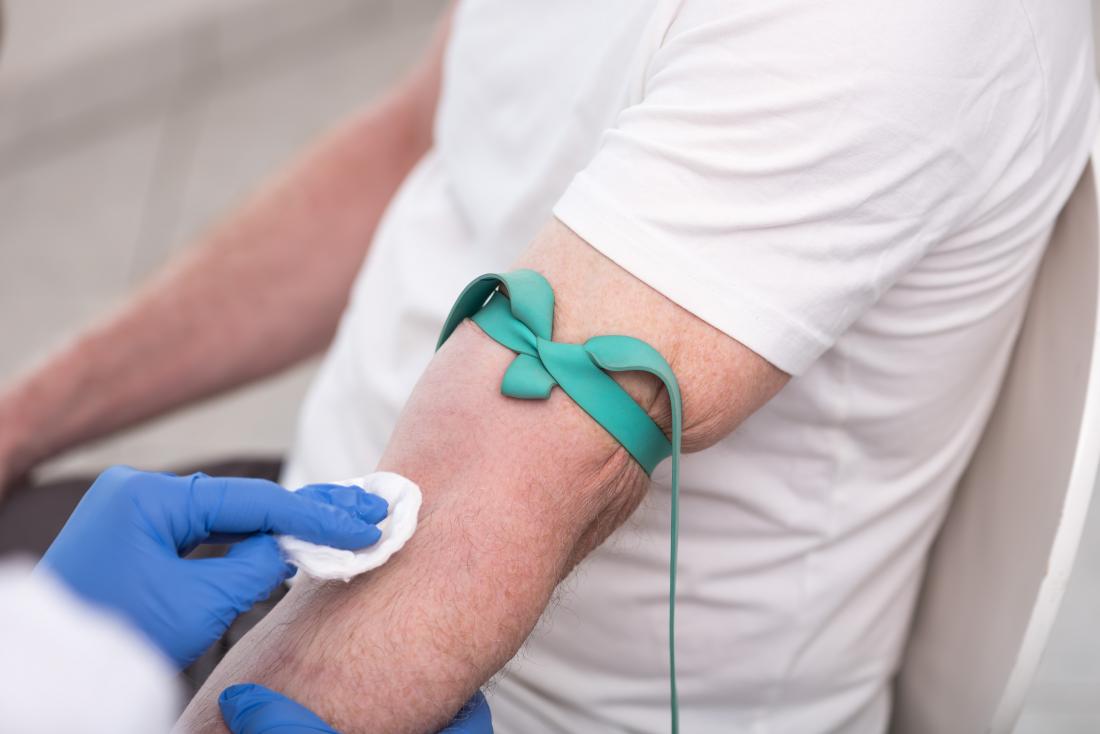A thyroid test is done to check how well the patient’s thyroid gland is working and to also find the root of problems like hyperthyroidism or hypothyroidism. The thyroid is a small butterfly-shaped gland that is located below the skin and muscles at the front of the neck.
Since it is an endocrine gland it secretes two types of hormones: Triiodothyronine (T3) and Thyroxine(T4). Each hormone has its specific functions concerning the body. These hormones help smooth the functioning of the body by using the energy to stay warm and to help organs like the brain, heart, and muscles function properly.
If these hormones aren’t produced enough one might experience various symptoms that include lack of energy, depression, and weight gain. This is known as hypothyroidism
At the same time, if these hormones are secreted more than required, one might experience high levels of anxiety, tremors, and weight loss. This is known as hyperthyroidism.
Types of Thyroid tests
You might be prescribed by the doctor to have one or more blood tests to check your functioning thyroid. The different types of thyroid tests you might be described with are TSH(Thyroid Stimulating Hormone) test, T4, T3, and thyroid antibody tests.
- TSH TESTS
One of the best ways to test thyroid function is to measure the TSH level. The changes in TSH act like an early warning system before any serious hormone-related activities occur in one’s body. If the TSH level is low, that means the thyroid is producing too many hormones which could lead to hyperthyroidism.
In the case of high TSH level, it indicates less secretion of hormones which might lead to hypothyroidism. This is one of the most important thyroid tests to take before T4 and T3. In the case of normal TSH level, it would mean that the patient is healthy and has a proper functioning Thyroid.
- T4 TESTS
This is also one of the most common thyroid tests and is usually ordered together with the TSH test.
This test is also called the Thyroxine test. In the case of high levels of T4, it would mean that the patient has an overactive Thyroid. The symptoms for this result (hyperthyroidism) would include anxiety, tremors, diarrhoea, and extreme weight loss.
This test can be done in one or both ways which are:
- Total T4: this measures the amount of thyroxine in the blood as well as the amount of thyroxine attached to the blood proteins
- Free T4: through this way the thyroxine that’s not attached to the proteins is measured. This is the part of the T4 hormone that affects how the body cells work.
- T3 TESTS
This test is usually performed to diagnose hyperthyroidism and to figure out the severity of hyperthyroidism. High levels of T3 indicate Hyperthyroidism. However, patients can be diagnosed with hypothyroidism with high TSH and low ft4, and will still have a normal T3.
This Thyroid test is possible in two ways:
- Free T3: this helps in the measurement of free T3. However, this test is usually not reliable and not typically helpful
- Reverse T3: this is a biological inactive protein that is almost identical to T3. However, the measurement of reverse T3 doesn’t help indicate hypothyroidism.
- THYROID ANTIBODY TEST
Lymphocytes are the antibodies produced by blood cells. In cases of hypothyroidism and hyperthyroidism, these lymphocytes react against the thyroid autoimmunity and produce antibodies against thyroid cell proteins. A thyroid antibody test is done if your doctor thinks that you have Grave’s disease. The thyroid antibodies can be tested with blood samples which measure the levels of antibodies that are destroying the thyroid tissue.
What’s the procedure for Thyroid tests?
There’s no need to prepare anything special for a thyroid blood test. This test is done in a very painless way by withdrawing blood using a small leader from a vein in the patient’s arm. No special precautions should be followed (like fasting) before a thyroid test. However, it is recommended to have the thyroid test in the morning and take the medications right after them.
What’s the range of a Healthy Thyroid?
Since the normal range for thyroid blood tests can vary by age. The most common range for adults is given below.
The normal range of TSH in a healthy thyroid is 0.4-4.0mlU/L, which means that there are no symptoms for an under or overactive thyroid. For T3 and T4 tests, the normal values are 60-180, nanograms per deciliter, and 5-11ug/dL respectively.
In case your thyroid test results say otherwise, you’ll be diagnosed with hypothyroidism, Hyperthyroidism, or any other thyroid disorder.
If you have any questions regarding a thyroid test, you can consult your doctor and also talk to the technician who draws samples of blood before the procedure takes place. Make sure to have all the necessary information before you take the test.

